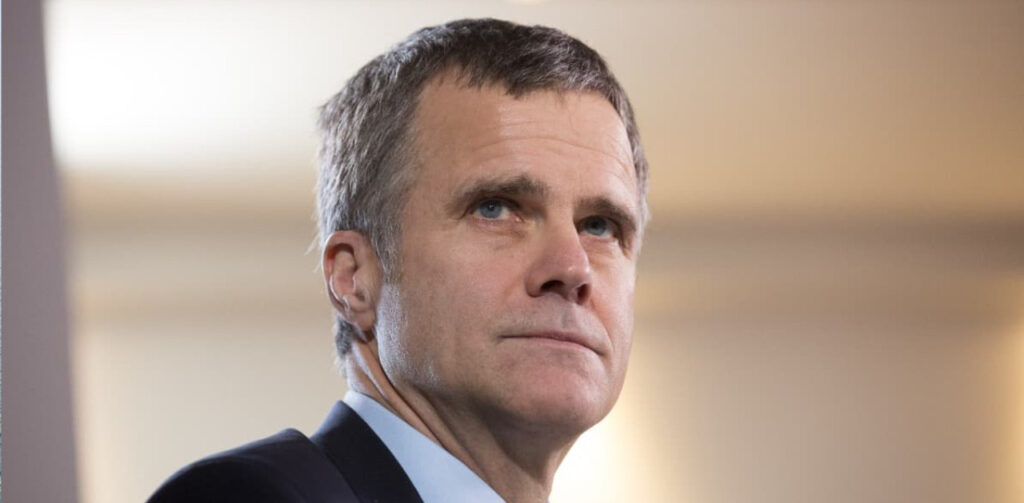BP Plc’s outgoing Chairman, Helge Lund, was re-elected to the board during the oil giant’s annual general meeting, despite a significant protest vote from shareholders concerned about the firm’s recent shift away from green energy targets.
Preliminary results revealed that just under 76% of shareholders supported Lund’s reappointment—a marked contrast to the over 90% approval received by other senior executives.
The relatively low support highlights growing investor discontent with BP’s strategic direction and governance on climate issues.
Investor rebellion reflects frustration over climate U-turn
Major institutional investors, including Legal & General Group Plc, had previously voiced their intention to vote against Lund’s re-election.
Their opposition was rooted in dissatisfaction with BP’s strategy reset under new CEO Murray Auchincloss, which pivots away from clean energy investment and back towards fossil fuel development.
Although largely symbolic—given that Lund has already declared his intention to step down—the vote underscores tensions within BP’s investor base.
The chairman had been a key advocate of the company’s earlier, now-abandoned strategy to shift towards net zero emissions.
His position became increasingly tenuous following the disclosure that activist investor Elliott Investment Management had acquired a 5% stake in BP, aiming to push for structural changes after years of underperformance.
Activist pressure and lukewarm response to a new strategy
BP confirmed on 4 April that Lund would relinquish the chairmanship “in due course,” while remaining on the board during the transition. Investor criticism intensified after Auchincloss’s revised strategy failed to win widespread approval and reportedly fell short of Elliott’s expectations.
As BP now channels more capital into oil and gas operations—meeting the demands of some investors—others have raised alarms over the environmental implications.
At the AGM, representatives from wealth manager Rathbones and the Australasian Centre for Corporate Responsibility (ACCR) questioned the company’s direction and climate leadership.
Nick Mazan, UK strategy lead at ACCR, stated: “With no other climate-related item on the AGM ballot, it is safe to assume this vote against the Chair reflects continuing concern over BP’s climate governance.”
Succession planning underway for new chairman
Amanda Blanc, BP’s senior independent director, confirmed that the process to find Lund’s successor is “well under way and moving at pace.” She assured shareholders that the board is committed to a thorough but swift appointment.
The outcome of the leadership transition will be closely watched by both investors and environmental groups, as BP navigates its strategic crossroads and mounting pressure to balance profitability with climate accountability.


